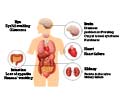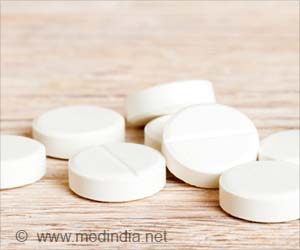A novel protein family that may play significant role in preventing inflammatory diseases has been identified by the researchers at the University of Central Florida.
A novel protein family that may play significant role in preventing inflammatory diseases has been identified by the researchers at the University of Central Florida. Researchers believe that this protein family could be a potential drug target in future.
The researchers, whose research received funding from the National Institutes of Health, said that their findings might spawn potential strategies to aid the body’s defence system in future.“What we found is a family of proteins that control macrophage activation,” researcher Mingui Fu said from a laboratory in the Burnett School of Biomedical Sciences at UCF.
Macrophages are the body’s self-cleaners that live in the bloodstream, and are called to action when bacteria or other foreign objects attack, something which is manifested by inflammation at the infection site.
Once triggered, macrophages travel to the infection site and gobble up the invader, helping the body heal.
However, when macrophages go awry, they can cause more harm than good. Sometimes the macrophages mistake the body’s own organs for invaders and attack, and that can cause arthritis or some forms of cancer.
While many scientists have been studying what triggers macrophages, no one has come up with a step-by-step process as yet.
Advertisement
The researchers continue to study different aspects of the proteins because of the possibility that they will be critical in treating and curing inflammatory diseases.
The researcher, however, conceded that more studies were needed.
“Because this novel protein has key roles to play in the major inflammatory diseases such as cardiovascular disease, cancer and obesity-induced type2 diabetes, it is a promising drug target. We have a patent application filed on this protein for that purpose,” Kolattukudy said.
The study has been published in the Journal of Biological Chemistry.
Source-ANI
SUN/L








